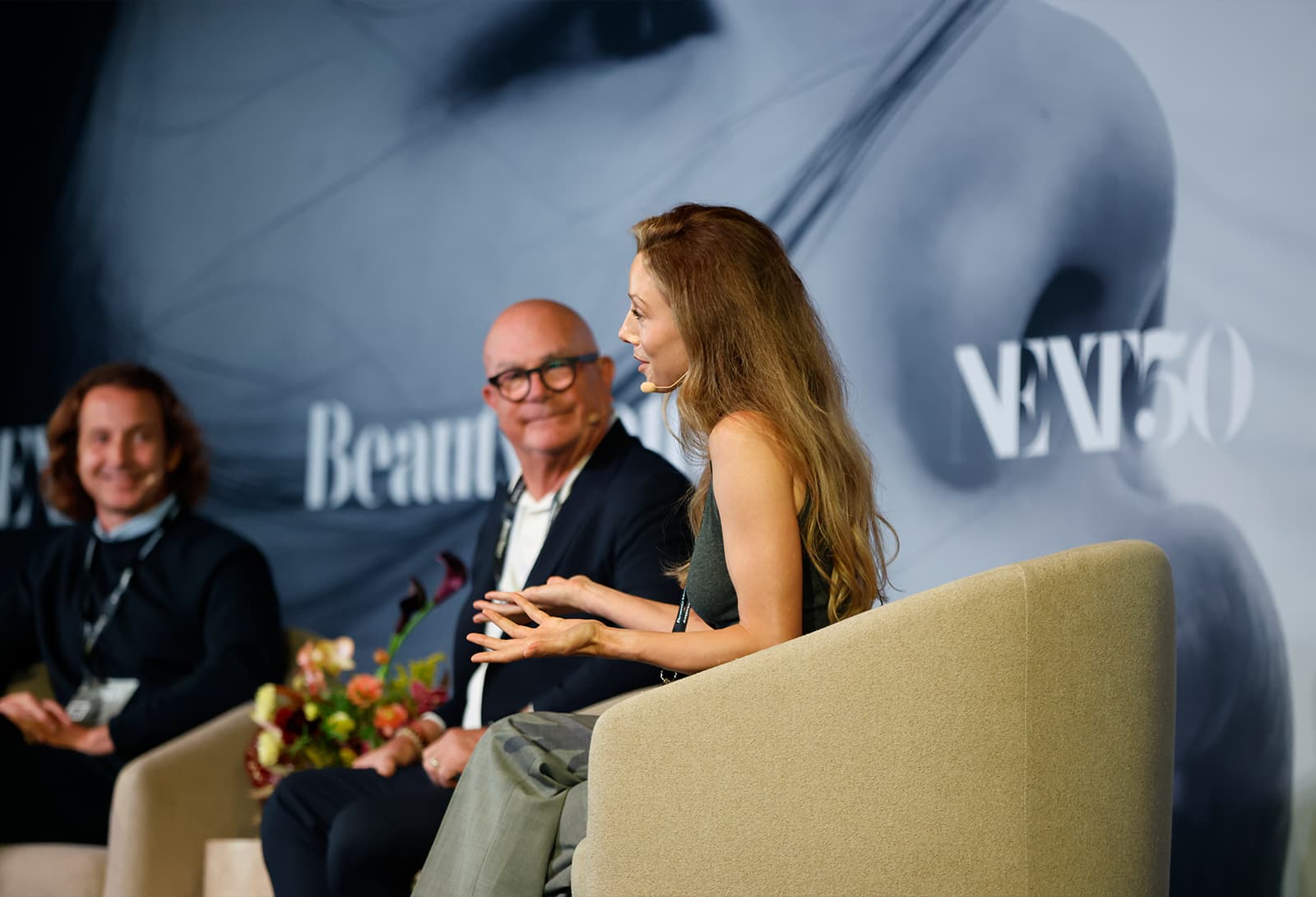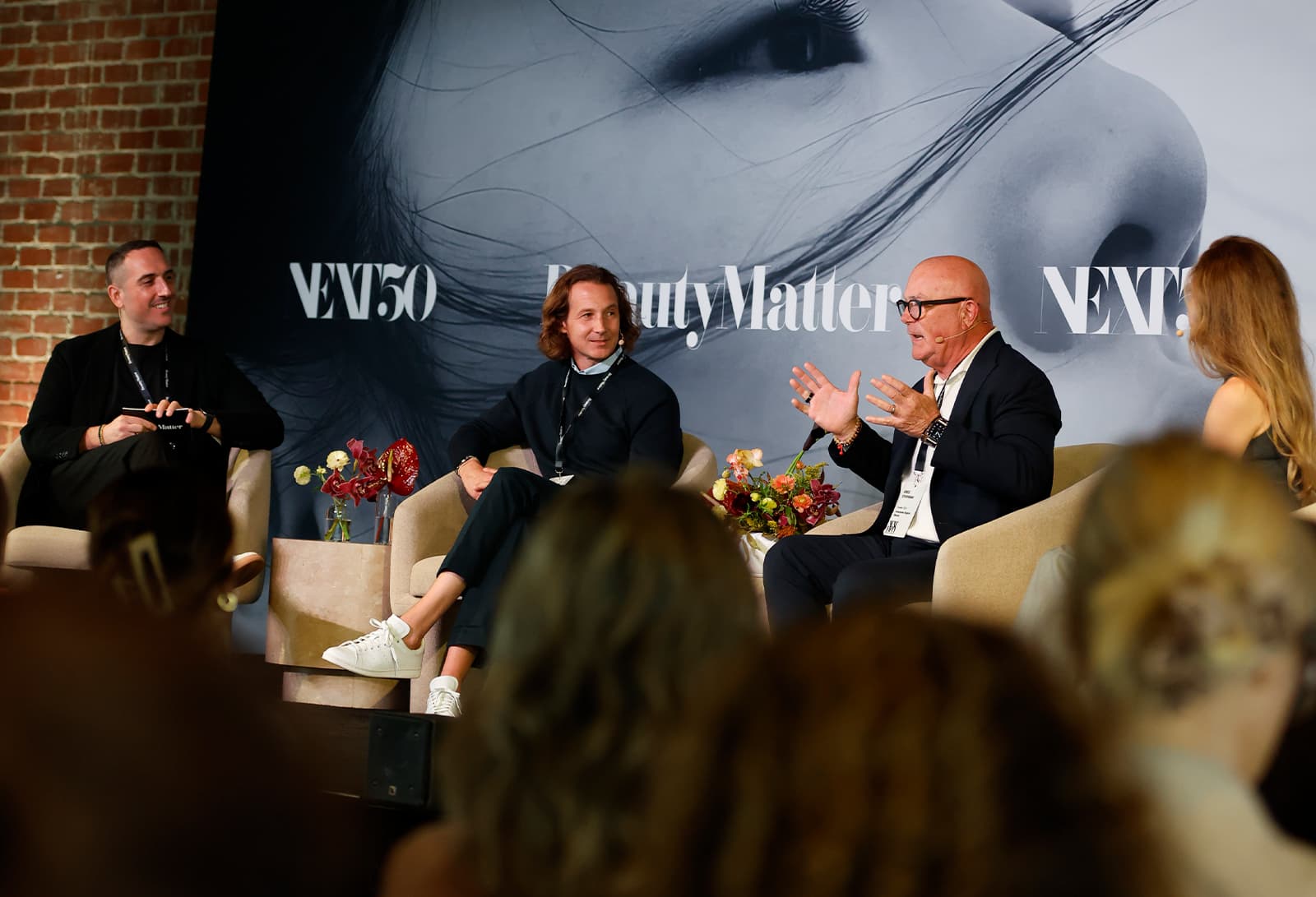Key Takeaways:
The beauty industry is currently in an era largely dominated by venture-backed brands and rapid-fire exits. However, a new kind of intentional founders are reclaiming the narrative, using independence, discipline, and patience to build solid businesses. At BeautyMatter’s NEXT50 Summit, John Cafarelli, co-founder and President of BeautyMatter, moderated a panel on “Bootstrapping: Building and Scaling on Your Own Terms,” in which founders Cassandra Thurswell of Kitsch, Greg Starkman of Innersense Organic Beauty, and Matthew Berkson of Maison Louis Marie shared how growing without outside capital shaped not just their businesses, but their philosophies.
“I definitely chose bootstrapping,” said Thurswell. “I also didn’t have a five-year plan. For me, bootstrapping was really the only choice. I’m also not a fan of debt, so being able to go to sleep at night knowing I could pay my bills was pretty much all I needed.” Starkman, who launched Innersense more than two decades ago, reflected on how limited access to capital forced early creativity. “There wasn’t really private equity money. We pre-sold through professional distribution, delivered about half a million dollars in revenue, and worked with our contract manufacturer that gave us extended terms. That’s how we self-funded the business,” he shared. He added, “Your vendors are your biggest partners. If you have a strong business plan, they’re going to want to see you along that journey.”
For Berkson, who co-founded Maison Louis Marie with no prior beauty experience, bootstrapping created room to build deliberately. “We just wanted to create a beautiful luxury brand. Since we didn’t have any expectations to grow super fast, it gave us a lot of room to really develop our brand at the beginning.”
All three agreed that bootstrapping remains viable in today’s landscape, although it demands discipline and grit. “It’s not sexy or glamorous,” said Thurswell. “I think bootstrapping takes a lot of patience. You can have a small, profitable brand that you love but that’s not celebrated enough.” That self-reliance often translates into sharper business instincts. “When you bootstrap, you don’t have the luxury of hiring experts for every part of your business,” Thurswell added. “It forces you to learn everything. You understand every penny you’re spending and why you’re spending it.”


Starkman emphasized financial fluency as non-negotiable. “The first thing you need to learn is how to read a P&L and to plan. You need to know what’s going out, what’s coming in, and plan for the hiccups. Staying out of debt from day one was critical, as being in debt was not an option.”
For Berkson, scaling through independent retail provided both cash flow and credibility. “Independent retailers really formed a base for us. We kept expenses low and built slowly, which created a healthy company. We didn’t open our first credit line until about year six.”
The panelists also pointed out the value of old-fashioned resourcefulness. Thurswell recalled that doing door-to-door sales was “mortifying but invaluable.” She added, “If people aren’t stopping, asking questions, showing curiosity in your product, that tells you everything. Those scrappy moments prevented us from making expensive mistakes later on.”
Ultimately, bootstrapping requires mindset as much as method. “You have to have just a desire to win,” said Starkman. “There’s no failure.” Berkson called resilience key: “You get so many no’s, can you go to work the next day and keep going?” Thurswell described it as “a high level of private discipline, doing the unseen work where there’s no applause.”
Although the beauty landscape has a culture obsessed with scale, these founders championed business sustainability and longevity over spectacle. “Don’t raise money because you think someone will save you,” said Thurswell. “No one will save you; you have to save yourself.”

Want to continue reading this article and others just like it?
Subscribe to BeautyMatter and access the most current beauty intelligence and news updates.
SubscribeAlready a member, login here.